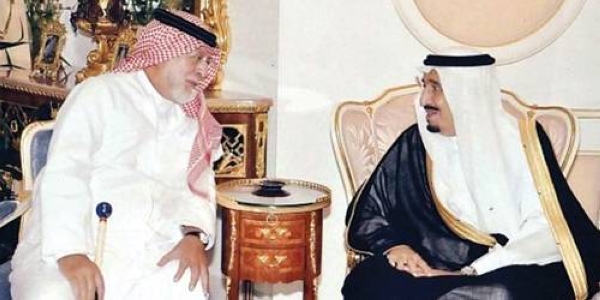[ad_1]
Saudi Gazette report
JEDDAH — Several prominent figures, including writers, cultural figures, businessmen and social media activists mourned the death of eminent Saudi writer and businessman Abdul-Maqsoud Khoja. He was 86. Khoja died in a hospital in the United States of America on Saturday.
Khoja is regarded as one of the most important symbols of the cultural movement in the Kingdom. He has led several cultural and social activities in Saudi Arabia, most notably the establishment of Ithnainiyah Literary Cultural Forum in Jeddah in 1982. He was also the founder and chairman of the Khojah Group, a Jeddah-based real estate development company.
Born in Makkah in 1936, Khoja held several Saudi government positions before quitting the job to switch over to business. These included the delegate of the Saudi Royal Court to the Saudi Commission in Beirut; representative of the press office of the Saudi embassy in Lebanon; and director of the General Directorate for Broadcasting, Press and Publication in Jeddah before the establishment of the ministries of culture and information.
During the year 1964, Khoja resigned from government job and turned to self-employment, and founded several companies in the field of construction, contracting and industry, including the Khoja Group, which is specialized in developing housing projects. As founder and chairman of the Khoja Group, he participated in several commercial, industrial and real estate activities in the Kingdom and abroad.
Khoja was the co-founder of Khaled Al-Faisal Center for Moderation. He served as the founder and the honorary member of the House of Artists and House of Photographers, as well as the Saudi Arabian Society for Culture and Arts in Jeddah and Makkah. He was also a member of the Board of Directors of the Saudi Science Club and Cairo League of Modern Literature; member of the Honorary Board of Jeddah Science and Technology Center and the Supreme Council of Antiquities.
The International Encyclopedia of Arabic Literature (Adab) noted in a condolence message that Khoja offered remarkable contributions to the Arab thought and literature through his famous Ithnainiyah Forum, which honored around 452 writers and cultural figures from all over the world. “May God bestow him forgiveness and mercy and accommodate him in His Paradise, and give his bereaved family members and relatives patience and solace to bear with this loss,” Adab said in a statement on its Twitter account.
The Modern Literature Association in Cairo awarded Khoja an honorary fellowship in appreciation of his efforts in sponsoring the literary and intellectual movement in the Kingdom. Ithnainiyah Forum was honored as a cultural institution by the Ministry of Information in 2010.
Writers, thinkers and journalists from within Saudi Arabia and various parts of the world were keen to attend this literary forum, during which more than 440 scholars, thinkers and writers were honored ever since its establishment.
Khoja’s cultural activities vary under the umbrella of Ithnainiyah Forum, which is held every Monday evening in Darati in Jeddah, which he founded to celebrate the prominent figures in the fields of literature, poetry and thought 40 years ago, through which he honored prominent literary figures and intellectuals within Saudi Arabia and various other countries around the world. They included internationally acclaimed scholars and preachers including Sheikh Abul Hassan Ali Nadwi of India, and Ahmed Deedat of South Africa, and many Saudi prominent figures such as poet Ibrahim Al-Awaji, woman medical scientist and former Shoura Council member Dr. Hayat Sindi, leading physician Dr. Khawla Al-Kuraya, and writers such as Safeya Bin Zager, and Maryam Al-Baghdadi.
Khoja documented all these honoring events and meetings with distinguished personalities and printed them in a series of books. There are a total of 185 volumes of Ithnainiyah publications. He was also interested in collecting and documenting the literary works of old Saudi writers, and presented them to interested readers for free of charge. In 2013, Khoja had given nine manuscripts dating back more than 500 years ago as a gift to the Saudi Commission for Tourism and Antiquities (SCTA) in order to showcase them in one of its public museums.
[ad_2]
Source link
